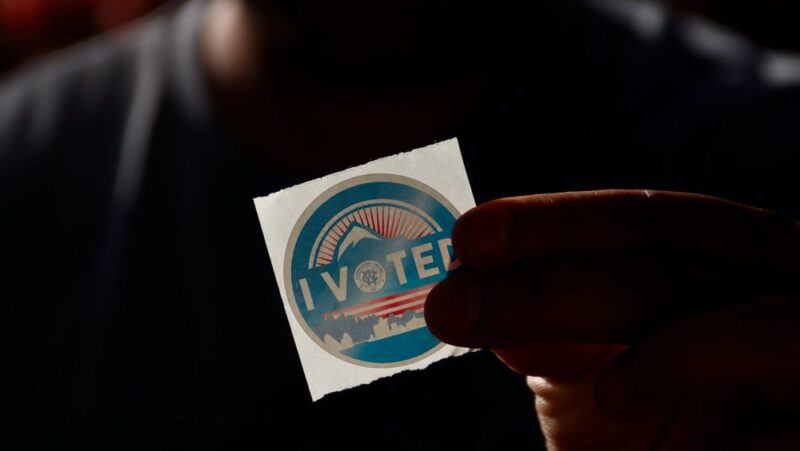New Laws on Religion in Schools Face First Amendment Tests

Louisiana, Oklahoma and Texas have passed laws that test the current limits on how religion is treated in public schools under the establishment clause of the First Amendment. If successful, public schools in some states may soon require posting the Ten Commandments in every classroom, teaching the Bible beginning in elementary school and allowing chaplains into schools to counsel students.
Three schools and religion issues to watch in 2025
These efforts are already stirring debate and lawsuits — but this is nothing new. Public schools had no sooner opened their doors in the 19th century than conflicts erupted over Protestant teaching in textbooks, Bible reading each morning and other practices favoring the majority religion. Catholic and Jewish families pushed back, mostly to no avail. In mid-century, Protestants and Catholics fought over whose version of the Bible would be read in classrooms. Tempers flared, riots broke out, and Catholic institutions were attacked by angry mobs.
Today these clashes have moved from the streets to the legislatures and courts. Ever since the U.S. Supreme Court applied the First Amendment’s establishment clause to the states nearly eight decades ago, the justices have had the last word on how religion comes into public schools. In a long line of cases, the court jettisoned state-sponsored religious practices and teachings from the classroom and required teachers and administrators to be neutral among religions and between religion and non-religion.
Ten Commandments in schools
Louisiana, Oklahoma and Texas appear to be seeking a Supreme Court do-over, betting that the justices will re-interpret the establishment clause to allow more school-sponsored actions that expose students to biblical teachings and values. For example, Louisiana’s new law requiring schools to post the Ten Commandments has been stopped by a lower court largely because the Supreme Court declared the practice unconstitutional in 1980. The state has asked the 5th Circuit Court of Appeals to overturn that decision citing recent Supreme Court rulings on the establishment clause that overturned the reasoning used by the court in 1980. Eighteen states have joined a coalition backing Louisiana's appeal.
RELATED: Does displaying, teaching Ten Commandments violate First Amendment?
Bible curriculum in schools
In Oklahoma, Superintendent of Public Instruction Ryan Walters is testing the limits of how much schools can teach about the Bible without running afoul of current law. In June 2024, Walters directed all district superintendents to incorporate lessons about the Bible in grades 5 through 12. He argues that knowledge of the Bible is key to understanding American history and says that the approach will be academic, not devotional. Parents, teachers and clergy have filed suit against Walters’ directive, asking the Oklahoma State Supreme Court to overturn the mandate. Critics question Walters’ commitment to objectively teaching about the Bible given his support for state-sponsored prayer in schools. They also question the constitutionality of favoring the Bible over all other religious texts.
Meanwhile, Texas has already begun to infuse a new Bible curriculum in public schools, using private funds and making it optional. State officials describe the curriculum as biblical literacy, which is constitutional, rather than biblical advocacy, which is not. Critics, however, point out that most of the religious stories that kids will study are from the Bible with only a handful from other religious traditions. Here again, the Supreme Court may need to reinterpret or even reverse past cases to uphold what is happening in these states. If Texas and Oklahoma prevail, expect to see a surge in teaching about the Bible in the curriculum of many other states.
Religious chaplains in schools
Louisiana, Texas and Florida have passed laws allowing public schools to hire religious chaplains and/or engage them as volunteers to be counselors for students. As many as 12 other states are considering following suit. Under current law, public schools hiring chaplains or using them as volunteers might pass constitutional muster especially if safeguards were in place to ensure chaplains did not use their position as counselors to evangelize students. But lawmakers in Texas and Louisiana have no provision prohibiting chaplains from promoting religion and no requirement of parental permission.
By contrast, Florida only authorizes volunteer chaplains. Parental permission is required before students get counseling from chaplains, and the school must provide parents with the religious affiliation of the chaplains. It is possible courts will decide that these provisions make the arrangement legal under current law. In all three states, critics who view chaplains in public schools as violations of the First Amendment will be watching. When and if promotion of religion occurs, lawsuits are sure to follow.
When court battles over Bible instruction, Ten Commandments displays, and chaplains in public schools grab the headlines in the coming year, we need to keep in mind just how much agreement there remains over many issues involving religion in public schools.
Freedom Forum guide to religion and schools
On Jan. 13, 2025, Freedom Forum released a comprehensive guide with answers to 23 questions about religion in schools that reflect a broad consensus among religious, education and civil liberties groups about how to address difficult issues under current law. “Religion and Public Schools: A First Amendment Guide” revises and updates consensus guidelines developed over the past several decades and widely distributed to public schools everywhere.
Reviewed by legal experts from across the religious and ideological spectrum, the new guide provides parents, students, educators and school board members with a legal safe harbor for addressing issues about prayer, religious holidays, student religious clubs, teaching about religion, student religious expression and much more. By applying current law as described in these guidelines, public schools uphold religious freedom for people of all faiths and none.
Charles Haynes is a senior fellow for religious liberty at Freedom Forum.
Teachers Face Limits on Their Election-Related Speech
Perspective: Sikh Americans Defend Religious Freedom For All
Related Content

